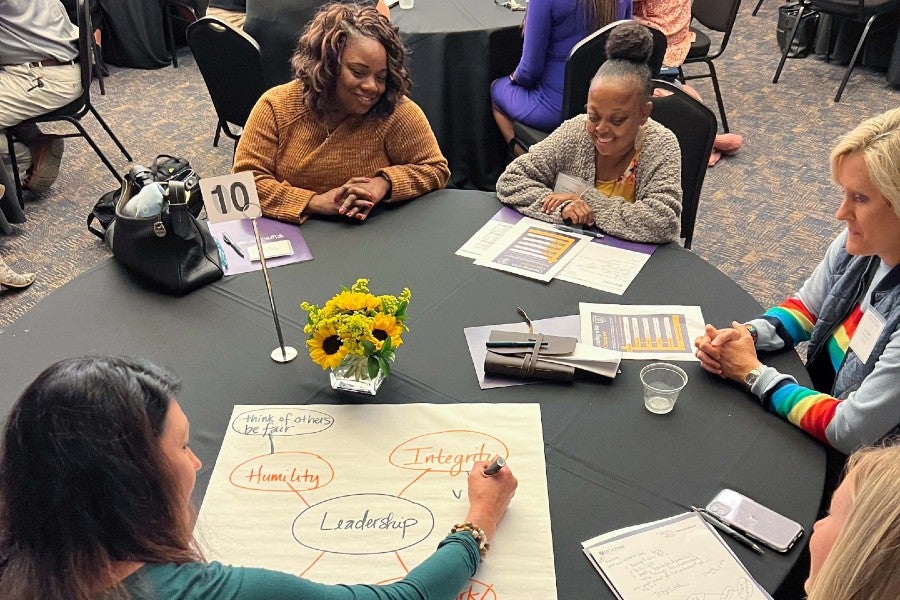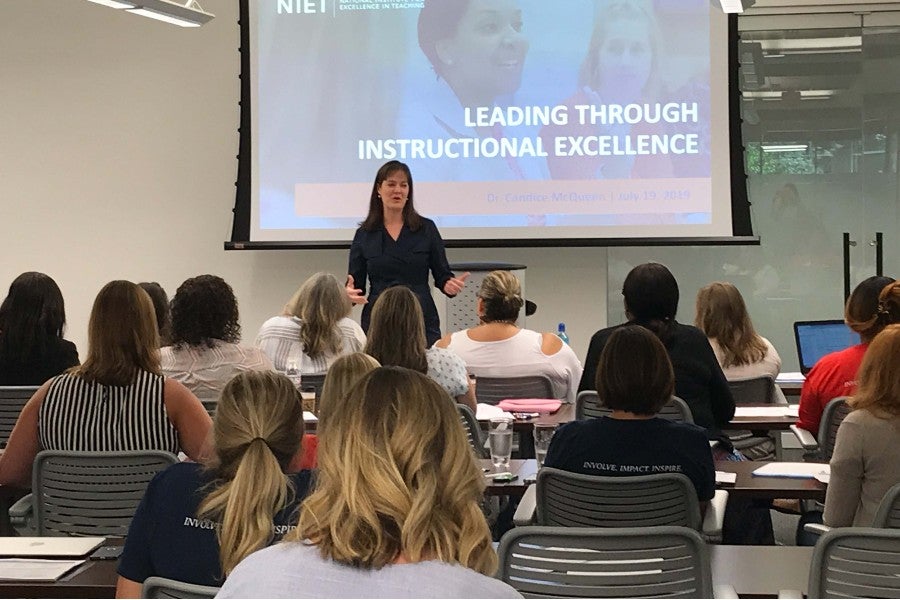Educational leadership program concludes with 89 new home-grown leaders
Of the participants in three cohorts since 2019, about 52% of them are now serving in leadership positions in Tennessee school districts.
Janel Shoun-Smith |

A five-year Educational Leadership Program, funded by a $2.49 million Kern Family Foundation grant in 2018, came to a conclusion in 2023 having produced 89 holistically prepared, home-grown leaders for Tennessee’s rural and high-need urban schools.
The innovative leadership development program for aspiring school leaders focused on developing character, academic excellence, conflict management skills and business acumen in rising leaders from areas projected to have educational leadership vacancies and limited resources to develop their own leadership programs.
Of the participants in three cohorts since 2019, about 52% of them are now serving in leadership positions in the partner districts, said Lance Forman, director of educational leadership in Lipscomb’s College of Education.
“This is significant because in Tennessee, there is, usually, a gap of about eight years between completion of a leadership preparation program and employment as a school leader,” said Forman. “To have so many from the cohorts already leading speaks to the quality of the candidates and the partnership with the districts to tap strong, aspiring leaders from within their district.”
The educators came together from 21 Tennessee school districts across all three Grand Divisions, from primarily rural areas of the state while also supporting educators from larger, urban school districts, to earn a master’s or education specialist degree in educational leadership and the Tennessee Instructional Leader License.
Participating candidates typically came from school districts that may have been geographically isolated from a higher education partner, faced challenges with educator retention from neighboring districts and may have lacked the resources to develop their own internal leadership pipeline, said Forman. Twenty-one percent of the students in the three cohorts came for underrepresented racial groups, he said.

Participants from Tennessee's three Grand Divisions in two of the three cohorts funded by the Kern Family Foundation.
Establishing a model for others to follow, the program provided opportunities for candidates to engage with school leaders in authentic ways through a leadership mentorship program. It also provided a refreshed graduate curriculum with performance-based assessments in leadership, business acumen and conflict management, while preparing candidates to channel financial and human resource functions toward academic success and character development.
“The grant allowed us to reimagine our leadership program to better equip educators to manage real-world demands they face as school leaders,” said Forman. “We’re driving high quality academic outcomes and strong character development in these areas through preparing leaders at the highest levels.”
By having rural, suburban and urban educators all together in one cohort, they were able to see how they all faced many of the same challenges and that sometimes a slightly different perspective could lead to sustainable solutions, said Forman.
“As the program went on, their perspectives on many educational issues changed dramatically,” he said. “They began to consider all districts from all schools. They gained a greater appreciation and understanding of that by sharing with colleagues from other programs.”
As one student told Forman: “I now feel part of a community that has the same goals and aspirations and am excited for us to grow and learn together. Without the Kern Fellowship, this level of learning and community simply would not be possible, and I am forever changed by this opportunity.”

Lipscomb President Candice McQueen, a former classroom teacher, professor and dean, provided her expertise to students in the program.